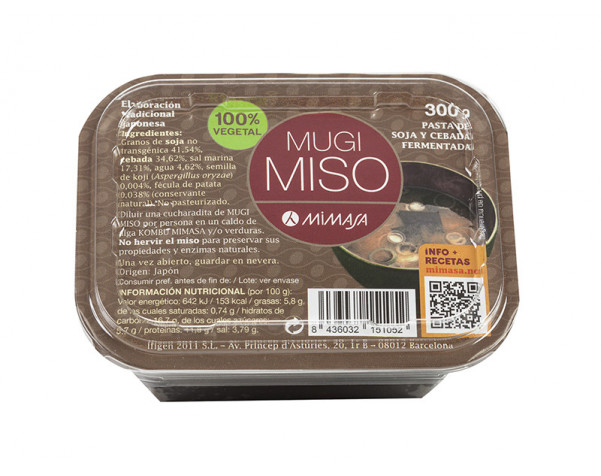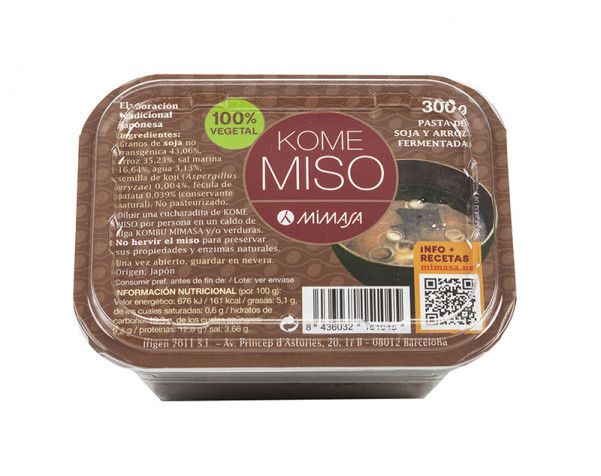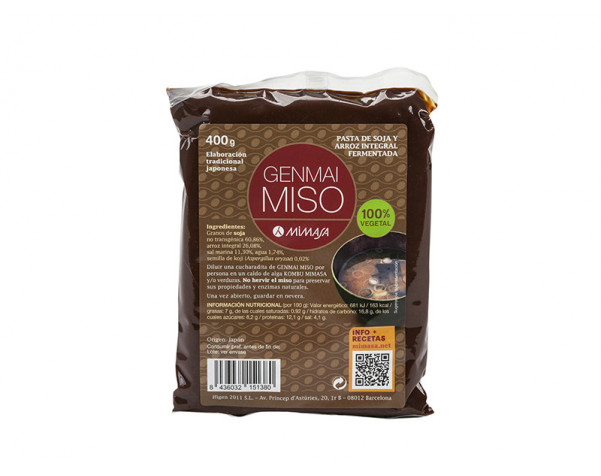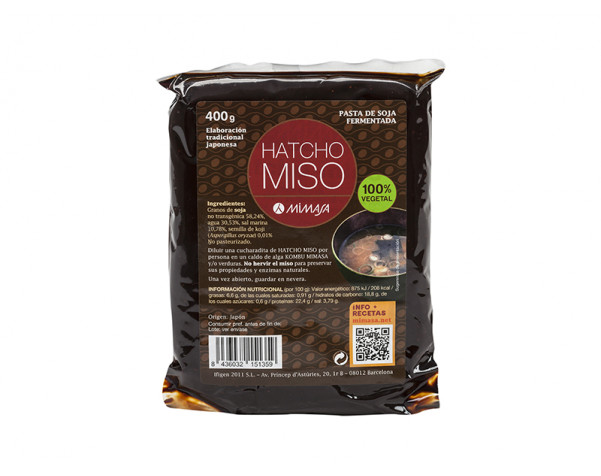Misos
Miso, Good for Digestion and Regulating Cholesterol
Fermented soy is the origin of miso, a low-calorie food that aids digestion and helps reduce cholesterol.
Miso is a food obtained from fermented soy, sometimes together with a cereal. There are many types of misos in Japan as the result of centuries of cultural and artisanal traditions.
The combination of proteins from soy and rice (white and brown) or barley creates a higher concentration of complementary amino acids and a better absorption. This is why most of the misos consumed are the ones produced with one of the cereals mentioned, like kome miso (with white rice), genmai miso (with brown rice) shiro miso (with rice) and mugi miso (with barley). Also, miso contains the exact amino acids that are missing in other staples like wheat, corn, sesame or even rice, so combining them with miso is extremely beneficial for our organism.
Nutritional Benefits
Miso favors digestion and the absorption of other foods thanks to four digestive agents: natural enzymes, lactobacillus, salt and mildew-resistant yeasts and other microorganisms. These microorganisms, after resisting long fermentation periods continue their action in the intestines, where they break down or digest complex proteins, carbohydrates or fats, making them easier to assimilate. Also, these bacteria prevent the presence of others that are harmful for the digestive system, as Doctors Want and Hesseltine of the USA Department of Agriculture found in 1972*.
Miso contains just 5% of natural unsaturated oils that are totally cholesterol-free. These oils are rich in lecithin and linoleic acid, and they precisely help to eliminate cholesterol and other fatty acids from the blood system. Miso is very low in calories, so it’s especially suited for weight-loss diets.
Vegetables products tend to have low levels of vitamin B12, but this is not the case of miso. It also alkalizes blood, which is a very important factor so that our body can resist diseases, our nervous system is alive but not excited, and we don’t experiment fatigue.
On the other hand, it is proved that miso helps getting rid of nicotine residues and environmental pollution. In this regard it is interesting to remember that when the atomic bomb exploded in Nagasaki, doctor Akizuki and his team did not suffer the effects of radioactivity although they had been helping the victims in a hospital for two years. They credited it to having eaten miso soup for years. Indeed, in 1972 a group of Japanese scientists discovered that miso contains a substance that they named Zybicolin that absorbs and eliminates the radioactive elements that invade the human body.*
MIMASA, First Quality
We need to emphasize the importance of the production processes of foods that, like miso, require great care. In the market we can find misos fermented just for a couple of months or even days, accelerating the process by applying heat. Also, preservatives that are easier to use than pasteurization are added. All of this results in an artificial product that lacks all the rich qualities of authentic miso.
MIMASA, loyal to its principles, offers first quality products, naturally fermented with no additives whatsoever. Among the many types, four misos with a long tradition are presented:
• Kome miso. White rice miso.
• Genmai miso. Brown rice miso.
• Mugi miso. Barley miso.
• Shiro miso. White rice miso.
• Hatcho miso. Soy miso without any cereal.




